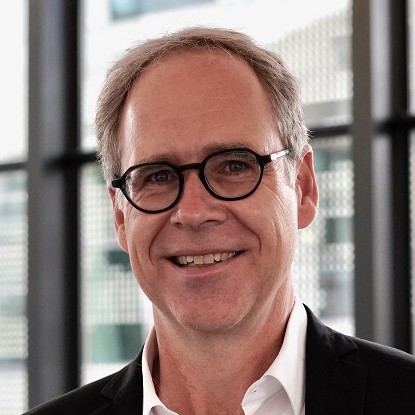Dr Yota Maeda
Age: 28
My research areas: from mathematics (arithmetic geometry, algebraic geometry) to mathematical sciences (quantum computing, machine learning)
Name of my University / Research Institute: Mathematical Institute, Tohoku University, Japan
Research period at the TU Darmstadt: March 1 2025 to December 31 2025
Programme: Alexander von Humboldt Research Fellowship Programme for Postdocs
My field of research is fascinating. The best way to explain it to non-specialists is…
I study algebraic and arithmetic geometry. Algebraic geometry investigates the shapes defined by polynomials, and arithmetic geometry, building on this, focuses on extracting arithmetic information. Just as trigonometric functions play a crucial role in many areas through their periodicity, my work focuses on automorphic forms, which exhibit even stronger symmetry, to understand how such symmetries govern geometric structures. My research also extends to quantum computing and machine learning, with the goal of uncovering shared geometric patterns across diverse fields.
What research questions are you currently working on?
What kind of data governs the geometry of mathematical objects? When dealing with spaces beyond our visual intuition, I ask what it truly means to “understand” such a space. One approach involves classifying spaces up to birational equivalence, treating shapes as the same if they differ only in lower-dimensional parts. I explore how automorphic forms control such classifications. In mathematical sciences more broadly, different notions of equivalence allow us to understand and compare structures, for example, in discussing performance and behaviour in machine learning.
My most important success in research to date is…
My most important success in research to date is the classification of compactifications of Deligne–Mostow varieties, known for their classical importance. The spaces in algebraic geometry are either non-compact, extending infinitely, or compact and thus more manageable. To deal with the former, we compactify them, transforming them into compact ones, while they are not unique. I described and systematically classified the compactifications of these varieties using automorphic forms.
I have chosen TU Darmstadt because…
I have chosen TU Darmstadt because it is home to Professor Jan Bruinier, a world-renowned authority in the field of automorphic forms. I have been reading his original and influential papers since my PhD, and I have long wanted to absorb his ideas and incorporate them into my own research. Additionally, I was once invited to speak at an online seminar hosted by TU Darmstadt, where I had the opportunity to interact with several researchers. That experience left a strong impression on me.
What reputation does German research enjoy in your home country?
German research enjoys a strong reputation in Japan. Among European countries, Germany has had long-standing academic ties with Japan, and its influence on Japanese research is profound. German work is highly regarded within Japan’s academic community. Personally, through joint projects with German researchers, I have been also deeply impressed by the high level of scholarship and academic rigor in German research.
What lasting impressions will you take back home with you from your time in Darmstadt and Germany?
One lasting impression is that Germany is a very comfortable place to live. Although the language is difficult (and I’m still struggling at the A1 level), people are extremely kind and helpful. In Darmstadt, I have appreciated the excellent public transport and the presence of many gardens, which reflect how much residents care about the city’s environment. This stay has been wonderful, and I would love to return if I have the opportunity.
Questionnaire for the host
Guest of: Professor Dr Jan Bruinier
Department: Department of Mathematics
What did you appreciate most about your guest, or what is it that impressed you most favorably…
For his rather young age he has a very broad knowledge of Algebraic Geometry, Number Theory, and Automorphic Forms. In his research he is very creative, and he has published a number of strong papers. Another nice feature is that our research interests complement each other pretty well.
You, your team, and TU Darmstadt benefit from your guest’s stay…
Expertise and experience in the above areas. In addition, he is very open for collaboration and interacts with many members of the team.







